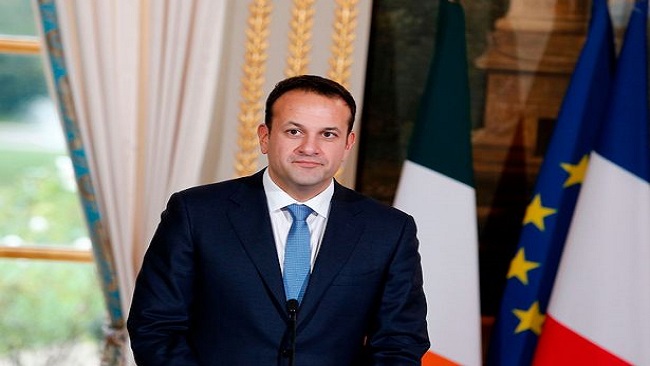Ireland ‘surprised and disappointed’ over failed EU, UK talks
Irish Prime Minister Leo Varadkar says he was “surprised and disappointed” that the UK government could not reach a deal with the EU after Brexit talks on the Irish border fell short of an agreement in the EU de-facto capital Brussels.
British Prime Minister Theresa May went to Brussels on Monday for key Brexit talks with Jean-Claude Juncker, the president of the European commission. It was widely anticipated that the meeting would conclude a first phase of Brexit negotiations. Many assumed that both sides would finally agree on the crucial issues of citizens’ rights, the financial settlement and most importantly the nature of the border between the Republic of Ireland and Northern Ireland’s border.
“The Irish negotiating team received confirmation from the British government and the [Michel] Barnier task force that the United Kingdom had agreed a text on the border that met our concerns,” said Varadkar on Monday after negotiations failed.
“I am surprised and disappointed that the British government now appears not to be in a position to conclude what was agreed today,” the Irish prime minster said. “I acknowledge that she [the British premier] is negotiating in good faith. But my position, and that of the Irish government, is unequivocal … We cannot agree to [move on to Phase II] unless we have firm guarantees that there will not be a hard border in Ireland under any circumstances.”
Leaked proposals suggested that May was planning to agree that Northern Ireland would remain “aligned” with the EU laws to avoid a hard border with the Irish Republic.
Alignment with EU laws means both the Republic of Ireland and Northern Ireland would follow the same rules governing trade, to ensure that goods can continue to move freely across a “soft” border with no checks, avoiding a “hard border.”
Conservative DUP torpedoed deal?
BBC’s Laura Kuenssberg said the deal had been “sunk” by the Democratic Unionist Party (DUP), which reacted angrily to reports of concessions on the Irish border and whose support May is relying on in parliament.
Within minutes of the agreement being made public, the DUP insisted both publicly and in a call with May that the deal is unacceptable. The DUP and many other Conservatives reject any outcome that sees Northern Ireland treated differently from the rest of the UK.
Northern Ireland will be the only part of the UK to share a land border with an EU member state after the UK leaves the EU.
London wants to withdraw from the customs union — within which goods can move freely — but has said it will not reimpose border posts, which many have said might upset the last 20 years of peace in Northern Ireland.
A hard border would make passport and customs controls mandatory, hampering business ties between the Republic of Ireland and Northern Ireland.
The EU is concerned that the adoption by Northern Ireland of different regulations on issues like food safety, environmental health and workers’ rights would make border checks necessary, in order to prevent goods that do not meet EU standards from being brought into the bloc, potentially undercutting European rivals.
Source: Presstv







